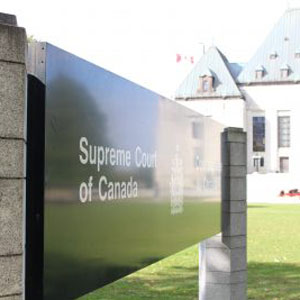Thank you!
This year, a member ministry reached out. They were facing new challenges from a change in local policy that threatened their ability to faithfully serve the local community. It wasn’t a headline case. There were no cameras or press releases.
But it mattered.
Because what happens in small meeting rooms and behind the scenes often shapes the future of ministry in Canada.
At CCCC, this is the kind of work your support fuels. The Legal Department has engaged with government leaders, responded to legislative proposals, and worked diligently to protect the integrity of charitable status.
This work is only possible because of your partnership. Every prayer lifted up and every gift to the Legal Defence Fund strengthens our capacity to act so that ministries of all sizes can continue serving with courage and confidence.
As 2025 ends and we look ahead to 2026, thank you for helping us stand in the gap.
A Peek Behind the Scenes
What does behind the scenes advocacy look like at CCCC? Here’s one example. When Bill C-2 proposed to prohibit cash donations of over $10,000, the sector was pretty quiet. So, we took steps to:
- Raise the issue with the CRA at a Technical Issues Working Group meeting,
- Write a follow up letter to the Minister of Finance,
- Send emails and had phone calls with government agencies.
Those efforts helped prompt two stakeholder meetings with the Department of Finance to discuss the issue.
A new bill, C-12, is fast-tracking parts of C-2 but the donation prohibition has been left out as one requiring “additional time to evaluate.” This was encouraging news! But the prohibition has reappeared in the 2025 Federal Budget, meaning our work on this issue isn’t done.
We’ll keep advocating to ensure donors and charities can give and receive cash responsibly while supporting the government’s legitimate efforts to curb money laundering and terrorist financing.
Charitable Status
Preserving charitable status remains front and centre for our members – and for us. Since June, we have:
- Made pre-budget submissions to the Department of Finance (August 2025),
- Made pre-budget submissions to the House of Commons Standing Committee on Finance (August 2025),
- Signed a legal letter drafted by Christian Legal Fellowship focusing on advancement of religion (August 2025),
- Helped coordinate a Canada wide charity-lawyer letter focusing on a range of concerns about the politicization of charities (September 2025),
- Co-led ongoing meetings with other national stakeholder organizations to share information and advocacy strategies.
We are very pleased to report that Budget 2025 contains no proposals threatening the advancement of religion as a charitable purpose! In fact, the Minister of Finance stated that the government "is not considering amending the Income Tax Act to remove advancement of religion as a qualifying charitable purpose, nor is it actively developing policy on this issue."
We wrote to the government extensively about politicizing charitable status, raising it at every opportunity, including in our pre-budget submissions. We know and are grateful that our voice – joined with yours and others – was heard by the Minister.
Court Interventions
We have two active interventions, which we detailed in our June 2025 update. But in case you missed it and want to add them to your prayer list, here is short review:
Equal Access to Public Facilities (Quebec): The Quebec government cancelled a religious group’s event at a government-owned venue because the leader’s past pro-life statements were incompatible with Quebec’s “resolutely pro-choice” views – even though the event was not related to abortion. CCCC joined with the Evangelical Fellowship of Canada and Réseau Évangélique du Québec to intervene. We are defending collective religious freedom and argue that public spaces must remain open to all voices—including religious ones. The hearing has been rescheduled for February 2026.
Conscientious Objection to Euthanasia (British Columbia): A euthanasia advocacy group is challenging the right of faith-based healthcare organizations to decline participation in euthanasia. CCCC is intervening to protect collective conscience, ensuring charities can continue serving in alignment with their faith-based purposes. The trial is scheduled for January 2026, and its outcome could profoundly reshape faith-based healthcare in Canada.
Ongoing Engagement
Looking ahead, CCCC will continue this work by:
- Developing a formal research paper for the Law Commission of Canada on the politicization of charitable status,
- Representing faith-based perspectives in submissions, policy priorities and discussions through involvement in Ontario and Canadian Bar Associations,
- Advising the CRA in our ongoing consultations through the Technical Issues Working Group.
In all we do, our goal is simple: serve your mission through faithful, wise, and principled advocacy. We invite you to join with us as we promote values and freedoms that allow Christian charities to flourish across Canada.
Give to the Legal Defence Fund
Previous Updates
Legal Affairs Update - November 2025
Legal Affairs Update - June 2025
Legal Affairs Update - November 2024
Legal Affairs Update - June 2024
Legal Affairs Update - November 2023
Legal Affairs Update - June 2023
Legal Affairs Update - November 2022
Legal Affairs Update - June 2022
Legal Affairs Update - November 2021
Legal Affairs Update - June 2021


